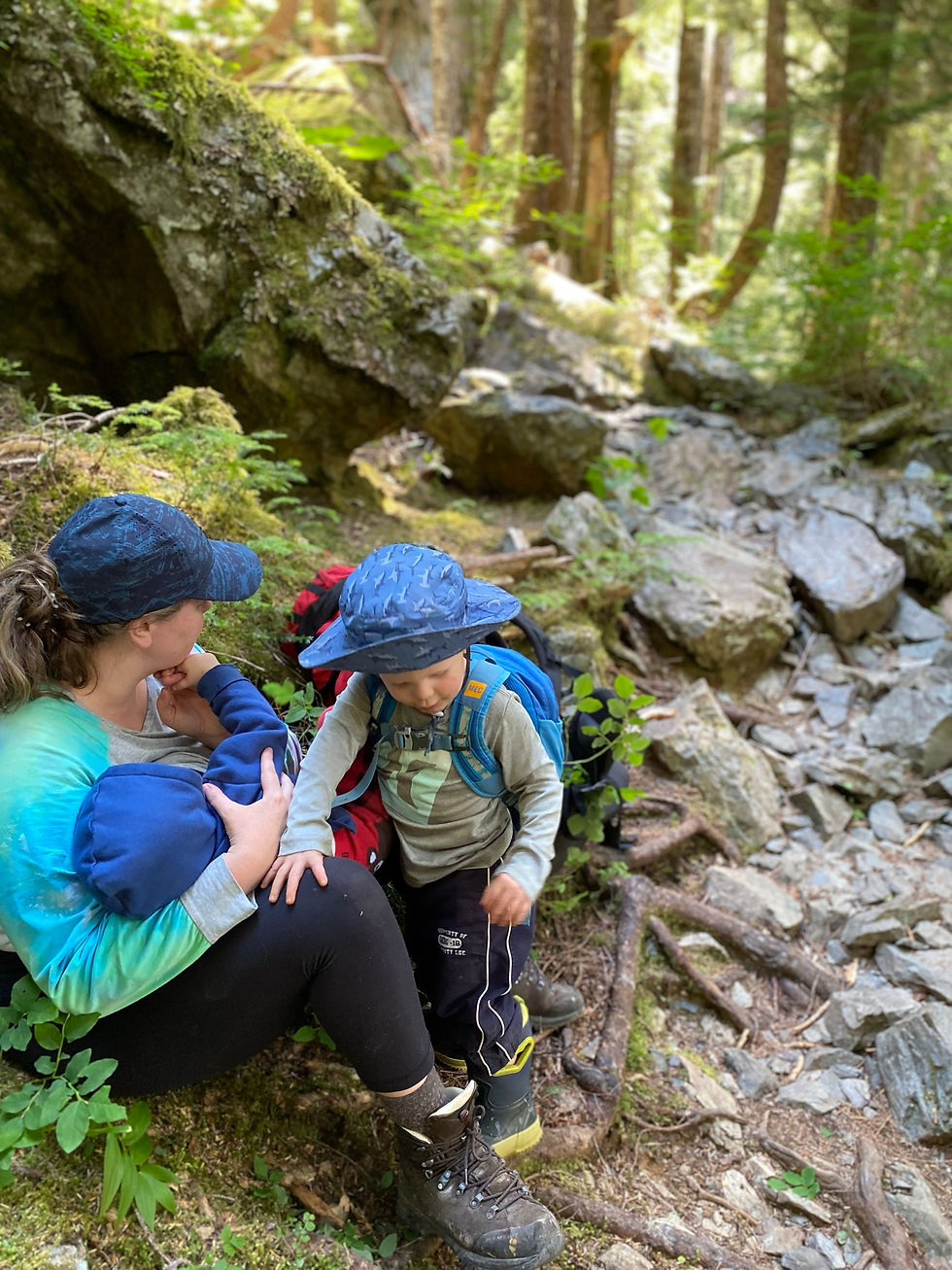Reversing Nature-Deficit Disorder Made Easy
- Ashley
- Aug 17, 2023
- 3 min read
Guest post by Judy Stephens
Evidence suggests that spending less time in nature is causing a rise in attention difficulties, diminished senses, and other developmental problems in children. This condition has since been given the moniker “nature-deficit disorder,” which is more than apt.
Luckily though, it’s a disorder that can be reversed by simply ushering the kids out the door and into the great outdoors.
Unsure of where to start or need ideas? Check out these resources for inspiration!

Play Outdoors
A study conducted in 2017-2018 revealed the scary data of 1 in 6 children and adolescents in the United States are overweight and shockingly, 6.1% of them in this group, have "severe obesity."
Getting our children active is more important than ever. The benefits aren't just physical though, playing outdoors also fosters mental, emotional, and social development.
One of the easiest ways to get kids outdoors is through fun family activities. Here are some enjoyable activities whether you’re hitting the beach or hanging out in the backyard.
Encourage your kids to spend time outdoors by creating a safe and open space for them to run and play.
From building race cars out of pool noodles to making art with chalk, if you need ideas for outdoor activities to try with your kids, this list from Nature’s Path has you covered.
I bet you didn’t know how much thought went into trampolines! This list from Today's Parent presents you with the sturdiest and most rust-proof to keep your kids jumping in the fresh air — and out of your hair — for hours.

Did you know that riding a bike makes you smarter? This 'Discerning Cyclist' analysis says it's true! And it’s not just the fresh air. Exercise fires up the brain’s neural-electrical processes, which means better cognitive functioning for everyone in the family!
There’s more to do at the beach besides building sandcastles, from rock-collecting to building snowmen out of the sand to trying your hand at kite-flying… or even some beach-based yoga! Check out this fun-filled list of beach activities for kids.
Learn in Nature
Research shows that children do better in school when they're healthy and happy (no surprise there), and learning outdoors is a great way to accomplish that.
Turn your outdoor time into an educational opportunity with these activities.
From identifying rocks and insects to bird-watching and fossil-hunting, there are plenty of ideas that will keep your kids smiling — and learning — in the great outdoors! Prioritize time in your schedule to spend with your kids. Even short experiences together can make a lasting impact, so get out there and play!
No list would be complete without these tips for helping your little ones get dirty and develop a green thumb.

Speaking of green, there’s so much — from basic mindfulness to confidence and creativity — that children can learn from the forest!
In fact, take the entire family camping to learn about nature firsthand! Use these helpful tips from Camping with Chaos to manage the unknowns of camping with children.
Get Dirty to Fight Nature-Deficit Disorder
Indeed, it’s a big world with countless enriching activities that kids will love. Truly, learning has never been more fun and play has never been more exciting.
Nature-deficit disorder simply doesn’t stand a chance!

Judy Stephens, the creator of GivenLove.org, had dreamt of being a mother since she was a little girl. After marrying her high school sweetheart, she gave birth to a baby boy within a few months, followed by two little girls in the next five years. Her own children were healthy and happy, but she knew not every child was as fortunate. After reading about a local child who had suffered greatly, she became a foster parent. Over the past eight years, she has cared for more than twenty children, learning valuable lessons in patience, persistence, and gratitude along the way. She feels blessed to have been given so much love. With GivenLove.org, she hopes to spread the word about the joys of fostering and provide information on how anyone interested can start the process of becoming a foster parent.



Comments